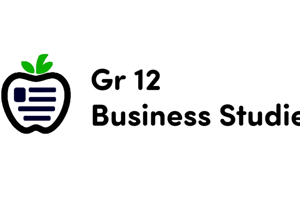Podcast
Questions and Answers
What is the primary purpose of problem solving?
What is the primary purpose of problem solving?
- Creating problems
- Avoiding difficult situations
- Analyzing challenges
- Finding effective solutions (correct)
How is a problem typically defined?
How is a problem typically defined?
- As a gap between actual and desired outcomes (correct)
- As an unsolvable mystery
- As an obstacle for progress
- As a reflection of success
Which factor does NOT influence the diversity of solutions?
Which factor does NOT influence the diversity of solutions?
- Scalability
- Technological complexity (correct)
- Environmental impact
- Complexity
What distinguishes efficient problem solvers according to the text?
What distinguishes efficient problem solvers according to the text?
In problem solving, what is a solution aimed at doing?
In problem solving, what is a solution aimed at doing?
What does a problem represent according to the text?
What does a problem represent according to the text?
What is the purpose of root cause analysis in problem-solving?
What is the purpose of root cause analysis in problem-solving?
In problem-solving, what does the Scrum Agile Framework emphasize?
In problem-solving, what does the Scrum Agile Framework emphasize?
Which technique involves structuring choices visually, considering their implications, and making informed judgments?
Which technique involves structuring choices visually, considering their implications, and making informed judgments?
What is a common challenge encountered during solution development?
What is a common challenge encountered during solution development?
Which methodology prioritizes quality improvement and minimization of defects in problem-solving?
Which methodology prioritizes quality improvement and minimization of defects in problem-solving?
Why is reflection on both successes and failures important in problem-solving?
Why is reflection on both successes and failures important in problem-solving?
Study Notes
Finding Balance through Problem Solving and Solutions
Problem solving is a fundamental skill we all rely on throughout our lives – from navigating daily challenges to tackling complex issues on the global scale. It's the process of identifying problems, analyzing them, and finding effective solutions. In this exploration, let's dive into understanding the significance of problem-solving techniques within various contexts and examine how different approaches help us find sustainable solutions.
Defining Problems and Solutions
A problem is typically defined as a gap between what currently exists and one's desired outcome. This discrepancy can arise when trying to understand a situation better, fulfilling needs, achieving goals, and so forth. A solution, therefore, is any action or strategy employed to close this gap, resulting in more favorable outcomes.
Solutions can take diverse forms depending upon their application domain. They could range from simple resolutions like changing your study methods to tackle academic difficulties to groundbreaking innovations such as developing renewable energy sources to combat climate change. Solutions might also vary based upon their complexity, scalability, environmental impact, cost effectiveness, and other factors.
Key Components in Effective Problem Solving Processes
Efficient problem solvers often follow systematic strategies that incorporate several essential components, including:
- Identifying the specific issue by breaking it down into smaller parts or using frames to categorize elements.
- Clarification of facts, gathering data, and verifying assumptions via questioning and documentation.
- Creating alternative options and evaluating potential consequences.
- Selecting the most suitable and feasible approach(es) given available resources and constraints.
- Implementing selected strategies with precision and monitoring progress.
- Reflection on both successes and failures to enhance future endeavors and improve problem-solving skills.
Common Techniques for Problem Solving
There are numerous techniques and models, each offering its unique perspective while assisting individuals and teams in enhancing problem-solving abilities:
- Brainstorming: Encouraging participants to generate multiple ideas without judging the quality of suggestions during initial stages.
- Root Cause Analysis: Determining underlying causes instead of merely addressing symptoms.
- Multiple Intelligence Approach: Leveraging various cognitive capabilities beyond logical-mathematical thinking.
- Design Thinking: Emphasizing empathy towards users, generating novel insights, experimentation, prototyping, critical evaluation, and sustainability considerations.
- Six Sigma Methodology: Prioritizing quality improvement and minimization of defects.
- Scrum Agile Framework: Focusing on iteratively testing solutions and delivering value early and continuously.
- Decision Tree Analysis: Structuring choices visually, considering their implications and making informed judgments.
Challenges and Limitations Encountered during Solution Development
Even though there exist countless advantages associated with robust problem-solving skills, some obstacles inevitably emerge along the journey. These include:
- Resistance to change
- Limited time/resources
- Prevalence of groupthink mentality
- Misinterpretation of information
- Inadequate communication
- Failure to consider broader perspectives
By recognizing these limitations, we can apply countermeasures to mitigate risks and foster innovative problem-solving environments.
In conclusion, exploring problem-solving concepts and implementing effective solutions is paramount across all aspects of life. By embracing relevant methodologies, tools, and mindsets, we empower ourselves with practical competencies required to navigate unpredictable circumstances. As we continually confront new challenges, fostering adaptive and flexible problem-solving skills will prove indispensable in attaining individual growth, team synergy, and societal advancement.
Studying That Suits You
Use AI to generate personalized quizzes and flashcards to suit your learning preferences.
Description
Test your knowledge on problem-solving techniques, solutions, and key components essential for finding effective resolutions. Explore various strategies like brainstorming, root cause analysis, multiple intelligence approach, and more to enhance your problem-solving skills.




